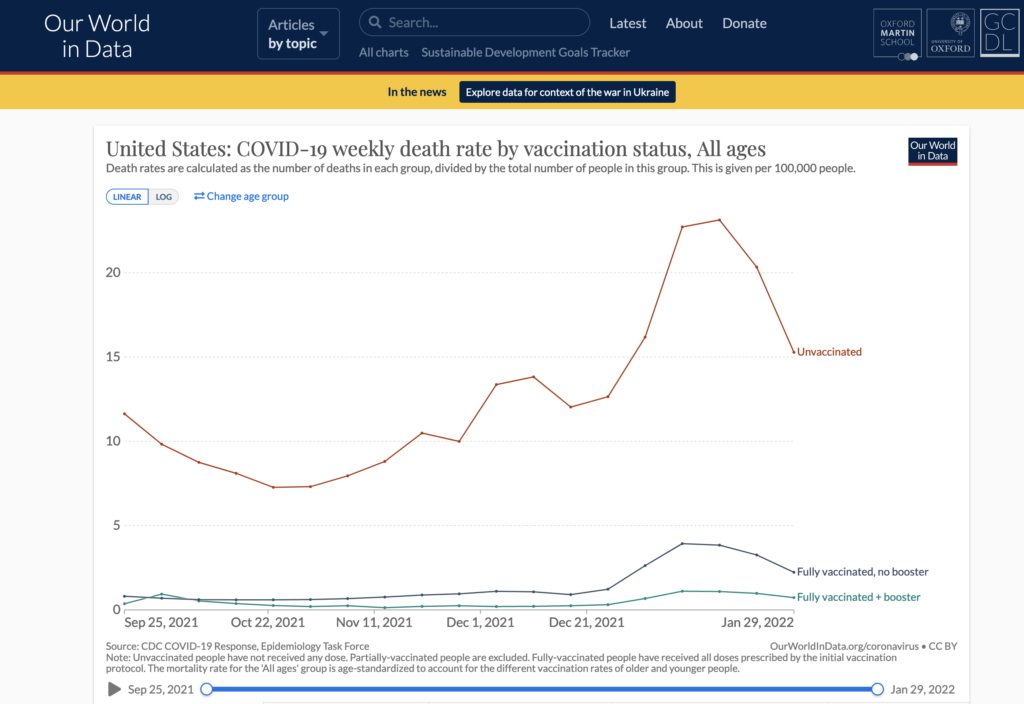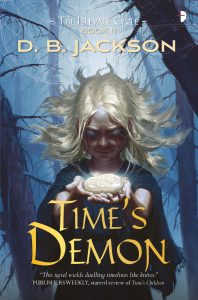My oldest brother, Bill, who we lost several years ago, was an avid reader. He loved books of all sorts. Every year, he made a list of the National Book Award nominees — finalists and books on the long list — and read them all. He read fiction and non-fiction, his interests as reflected in the latter ranging from baseball to natural history to military history. He was a poet in his own right, and he revered literature of every stripe.
And yet . . .
He was always quite proud of my career, and he had a shelf among his many book cases that he reserved for my novels. But he felt on some level that I was wasting my ability by writing fantasy. Many times over the years, he suggested I try my hand at writing so-called literary fiction. Every time he did, I cringed just a little.
 The bias against genre fiction (fantasy, science fiction, mystery, Westerns, romance, etc.) among those who consider themselves devotees of “true” literature, is something I have encountered again and again throughout my career. Not surprisingly, I don’t believe it has any basis in reality. Fantasy (to address my speciality) like literary fiction, runs the gamut in terms of quality. One can find in all literary fields examples of brilliance and also of mediocrity. No genre has a monopoly on either. I write fantasy because I enjoy it, because I love to imbue my stories with magic, with phenomena I don’t encounter in my everyday life. I wasn’t shunted to this genre because I wasn’t good enough to write the other stuff. I don’t hide in my genre because I fear I can’t cut it in the world of “real” literature.
The bias against genre fiction (fantasy, science fiction, mystery, Westerns, romance, etc.) among those who consider themselves devotees of “true” literature, is something I have encountered again and again throughout my career. Not surprisingly, I don’t believe it has any basis in reality. Fantasy (to address my speciality) like literary fiction, runs the gamut in terms of quality. One can find in all literary fields examples of brilliance and also of mediocrity. No genre has a monopoly on either. I write fantasy because I enjoy it, because I love to imbue my stories with magic, with phenomena I don’t encounter in my everyday life. I wasn’t shunted to this genre because I wasn’t good enough to write the other stuff. I don’t hide in my genre because I fear I can’t cut it in the world of “real” literature.
I said before that I cringed whenever my brother raised the issue with me. I also told him in no uncertain terms that I was writing what I enjoyed, and enjoying what I wrote, which remains true to this day. Writing fantasy demands that I create coherent, convincing magic systems. Often it requires the creation of entire alternate worlds, complete with their own histories and cultures, politics and religions, economies and social structures. These are not distractions from the fundamental elements of narrative — character development, plotting, pacing, clear and flowing prose, etc. Quite the contrary. These fantastical elements enhance those fundamentals and present unique and rewarding challenges.
 It’s not enough to create my worlds and magic systems. I have to explain them to my readers in a manner that is entirely natural and unobtrusive. And — my own preference — I also have to complete my stories and my character arcs in ways that utilize my fantasy elements without allowing them to take over my story telling. My heroes may possess magic, but in the end, I will always choose to have them prevail by drawing upon their native human qualities — their courage and resolve, their intelligence and creativity, their devotion to the people and places they love. Magic sets them apart and makes them interesting. It is often the hook the draws readers to my books. But those human attributes — those are the ones my real-world readers relate to. They form the bond between my readers and my characters. And so if those are the qualities that allow my characters to prevail in the end, then their triumphs will feel more personal and rewarding to my readers. It is the simplest sort of literary math.
It’s not enough to create my worlds and magic systems. I have to explain them to my readers in a manner that is entirely natural and unobtrusive. And — my own preference — I also have to complete my stories and my character arcs in ways that utilize my fantasy elements without allowing them to take over my story telling. My heroes may possess magic, but in the end, I will always choose to have them prevail by drawing upon their native human qualities — their courage and resolve, their intelligence and creativity, their devotion to the people and places they love. Magic sets them apart and makes them interesting. It is often the hook the draws readers to my books. But those human attributes — those are the ones my real-world readers relate to. They form the bond between my readers and my characters. And so if those are the qualities that allow my characters to prevail in the end, then their triumphs will feel more personal and rewarding to my readers. It is the simplest sort of literary math.
I believe part of the bias against genre fiction is based in the erroneous belief that the trappings of these literary types — magic, imagined technology, romantic tension and conflict, the ticking clock of a murder investigation — somehow serve as substitutes for character development and good writing fundamentals. In truth, they are complements to solid narrative work. Genre fiction, when well done, has all that extra stuff we love AND great story telling.
I expect I am preaching to the choir a bit with this post. That’s okay. It’s not just those of us who write genre fiction who have to put up with the biases of others. Readers of our genres deal with the same sort of prejudices all the time. Fine. Those other people don’t know what they’re missing.
Plus, their book jackets aren’t nearly as cool as ours.
Keep writing. Keep reading.









 And so those who trust the Covid science will remain safer than those who don’t. Those who keep up with vaccinations and boosters will get sick less often and less severely. They will die in far smaller numbers and spend far less time in the hospital. The numbers are dramatic and indisputable. Sadly, but predictably, living with Covid means accepting an ever widening gap in the rates of infection and in case outcomes between those who ignore the advice of medical professionals and those who follow it. It means accepting that some social and economic disruptions will be unavoidable. One-third of the people in this country are unwilling to protect themselves and their families. There are bound to be consequences for this.
And so those who trust the Covid science will remain safer than those who don’t. Those who keep up with vaccinations and boosters will get sick less often and less severely. They will die in far smaller numbers and spend far less time in the hospital. The numbers are dramatic and indisputable. Sadly, but predictably, living with Covid means accepting an ever widening gap in the rates of infection and in case outcomes between those who ignore the advice of medical professionals and those who follow it. It means accepting that some social and economic disruptions will be unavoidable. One-third of the people in this country are unwilling to protect themselves and their families. There are bound to be consequences for this. But at the very least, we need to see our main heroes grappling with what they have endured and setting their sights on what is next for them. We don’t need this for every character but we need it for the key ones. Ask yourself, “whose book is this?” For me, this is sometimes quite clear. With the Thieftaker books, every story is Ethan’s. And so I let my readers see Ethan settling back into life with Kannice and making a new, fragile peace with Sephira, or something like that. With other projects, though, “Whose book is this?” can be more complicated. In the Islevale books — my time travel/epic fantasy trilogy — I needed to tie off the loose ends of several plot threads: Tobias and Mara, Droë, and a few others. Each had their “Louis” moment at the end of the last book, and also some sense of closure at the ends of the first two volumes.
But at the very least, we need to see our main heroes grappling with what they have endured and setting their sights on what is next for them. We don’t need this for every character but we need it for the key ones. Ask yourself, “whose book is this?” For me, this is sometimes quite clear. With the Thieftaker books, every story is Ethan’s. And so I let my readers see Ethan settling back into life with Kannice and making a new, fragile peace with Sephira, or something like that. With other projects, though, “Whose book is this?” can be more complicated. In the Islevale books — my time travel/epic fantasy trilogy — I needed to tie off the loose ends of several plot threads: Tobias and Mara, Droë, and a few others. Each had their “Louis” moment at the end of the last book, and also some sense of closure at the ends of the first two volumes. Why do I do this? Why am I suggesting you do it, too? Because while we are telling stories, our books are about more than plot, more than action and intrigue and suspense. Our books are about people. Not humans, necessarily, but people certainly. If we do our jobs as writers, our readers will be absorbed by our narratives, but more importantly, they will become attached to our characters. And they will want to see more than just the big moment when those characters prevail (or not). They will want to see a bit of what comes after.
Why do I do this? Why am I suggesting you do it, too? Because while we are telling stories, our books are about more than plot, more than action and intrigue and suspense. Our books are about people. Not humans, necessarily, but people certainly. If we do our jobs as writers, our readers will be absorbed by our narratives, but more importantly, they will become attached to our characters. And they will want to see more than just the big moment when those characters prevail (or not). They will want to see a bit of what comes after. As many of you know, I am a fairly serious photographer and have been for some time. I have shown in local galleries, sold photos out of those galleries, and had a few photographs published in magazines. The walls of our house are sprinkled generously with enlargements of my images.
As many of you know, I am a fairly serious photographer and have been for some time. I have shown in local galleries, sold photos out of those galleries, and had a few photographs published in magazines. The walls of our house are sprinkled generously with enlargements of my images. And now I have a new side hustle I’m working on, to go along with my book sales at conventions and such.
And now I have a new side hustle I’m working on, to go along with my book sales at conventions and such. The sets are themed. There are two sets of macro (close-up) images of wildflowers and other flora from the area where I live, on the Cumberland Plateau. Another set features images of butterflies, also from around my home. (Actually, thinking about it now, I think every butterfly image was taken in Nancy’s flower garden.) And finally, a set I call “Reflections” features images of the various lakes around our little town.
The sets are themed. There are two sets of macro (close-up) images of wildflowers and other flora from the area where I live, on the Cumberland Plateau. Another set features images of butterflies, also from around my home. (Actually, thinking about it now, I think every butterfly image was taken in Nancy’s flower garden.) And finally, a set I call “Reflections” features images of the various lakes around our little town. For some of you, I know, this venture will be of little or no interest. I totally understand. But I also know that for others among you, you might think these sets are pretty cool. I hope you enjoy them.
For some of you, I know, this venture will be of little or no interest. I totally understand. But I also know that for others among you, you might think these sets are pretty cool. I hope you enjoy them.
 Honestly, I think “trust yourself” is good advice for life in general, but for me, with respect to writing, it has a specific implication. It’s something I heard a lot from my first editor when I was working on my earliest series — the LonTobyn Chronicle and Winds of the Forelands.
Honestly, I think “trust yourself” is good advice for life in general, but for me, with respect to writing, it has a specific implication. It’s something I heard a lot from my first editor when I was working on my earliest series — the LonTobyn Chronicle and Winds of the Forelands. You won’t get your best ideas sitting at your desk. You’ll get them in the shower. Or, when you’re driving your car, or taking a walk on a snowy day.
You won’t get your best ideas sitting at your desk. You’ll get them in the shower. Or, when you’re driving your car, or taking a walk on a snowy day. It’s happened to all of us. It happened to me writing my new book, Demon Kissed, and the next two in The Summoner’s Mark trilogy, coming from
It’s happened to all of us. It happened to me writing my new book, Demon Kissed, and the next two in The Summoner’s Mark trilogy, coming from